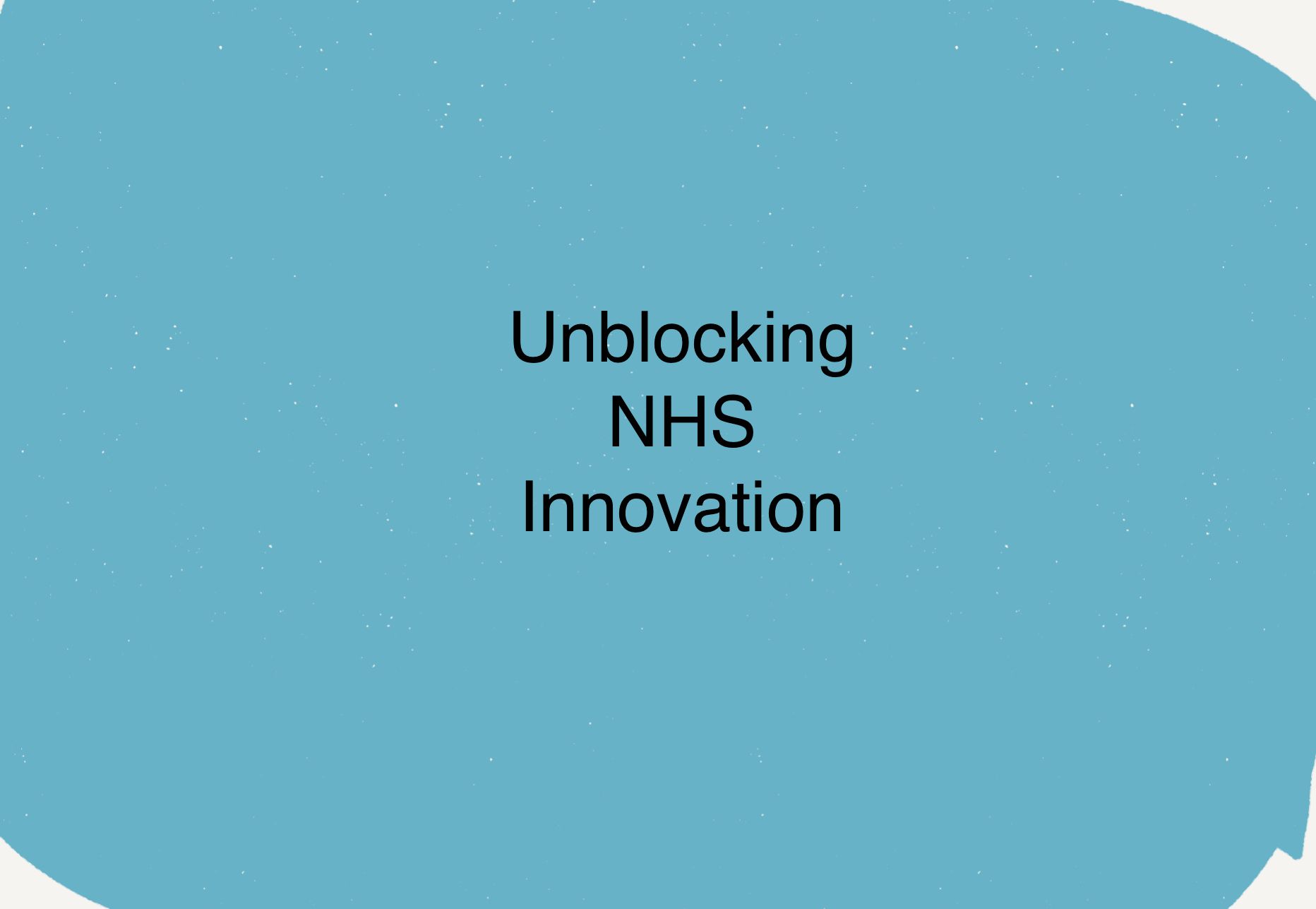Everyone in their day to day activities see opportunities for improvement and the inefficiencies that could be improved, it is rare that you are then supported to act on your ideas and create effective solutions to remove areas of frustration. In reality even if provided with training and resources very few people are experimenters. So while everyone can think of daily activities that can be improved, very few people would proactively do something about it. But in the NHS this group includes clinicians, healthcare professionals, patients and carers who know the pathways, people, struggles, medications and technologies. If supported they have the knowledge and skills to develop innovations that address real unmet needs in the NHS to improve patient care, public health and workflows. The NHS has, until recently, not actively supported clinicians and healthcare professionals to have the time or skills to lead changes in an fresh, innovative or entrepreneurial way. It is likely that this has been slowing the development of new approaches in the NHS that work for the NHS and address real unmet needs, frustrations and pressures.
The Jobs To Be Done Theory is an approach to developing new tools that seeks to understand the fundamental task that is trying to be done (or problem being solved) before developing the tool. This ensures the tool will address the actual root need, for example not creating a quicker scan but developing a better diagnostic approach. It is the difference between advising pain killers to a patient presenting with recurring headaches and exploring further to find there’s a underlying cause such as eye strain and treating this. The job to be done isn’t removing the headaches but removing the cause of the headaches. A person might present with a specific set of symptoms, which then leads to referrals and then tests to rule out some causes and possibly more tests to narrow down the cause. The job here is not for the person to have a series of tests, scans and/or biopsy but to understand the source of the symptoms. These tools should be the most fitting for the person, system and symptoms based upon the knowledge, skills, capabilities and expertise of the clinicians, diagnostics, patient and carer.
Creating a new solution needs to start with a understanding of the root task we are trying to do, we need to take this approach to co-develop the innovation. Health and care systems are complex, any new tool will need to work for a number of different people who have different priorities and needs. The team is important with no one person the hero, it needs a mix of skills and collaboration to ensure the innovation works for the users, has the right features for commissioners and decision makers and can be incorporated into real life workflows and associated restrictions. The clinician and healthcare professional have key roles to play and until recently have not had the opportunity to engage in this activity potentially stifling innovation in the NHS. Likewise patient engagement is often regarded as a tick box exercise but we are seeing development of community and patient advocates significantly changing approaches to health and care. It’s impossible to measure the number of opportunities lost due to limited support for entrepreneurial clinicians, healthcare professionals and patients but times are changing.
The NHS is notoriously difficult to implement changes due a number of reasons including lack of capacity, skill/training deficit, lack of infrastructure, insufficient funding, not invented here attitude, complexity of the user/buyer/decision maker/commissioner relationship, lack of change management support and innovations not developed to fit in current workflows or environment. The danger in creating a community of NHS entrepreneurs is bright and driven individuals become disillusioned by the difficulties of driving change and subsequently leave. Currently innovations go to market through the private providers, more and more often innovators are advised to consider implementation in the NHS as an aspiration but not a realistic first market. This bolsters the private offering potentially widening inequalities - only those that can afford the most recent innovations can access them.
Supporting NHS entrepreneurs means enabling the co-creation of innovations that address root needs. Key to it all is solutions that are tech enabled not tech led.

